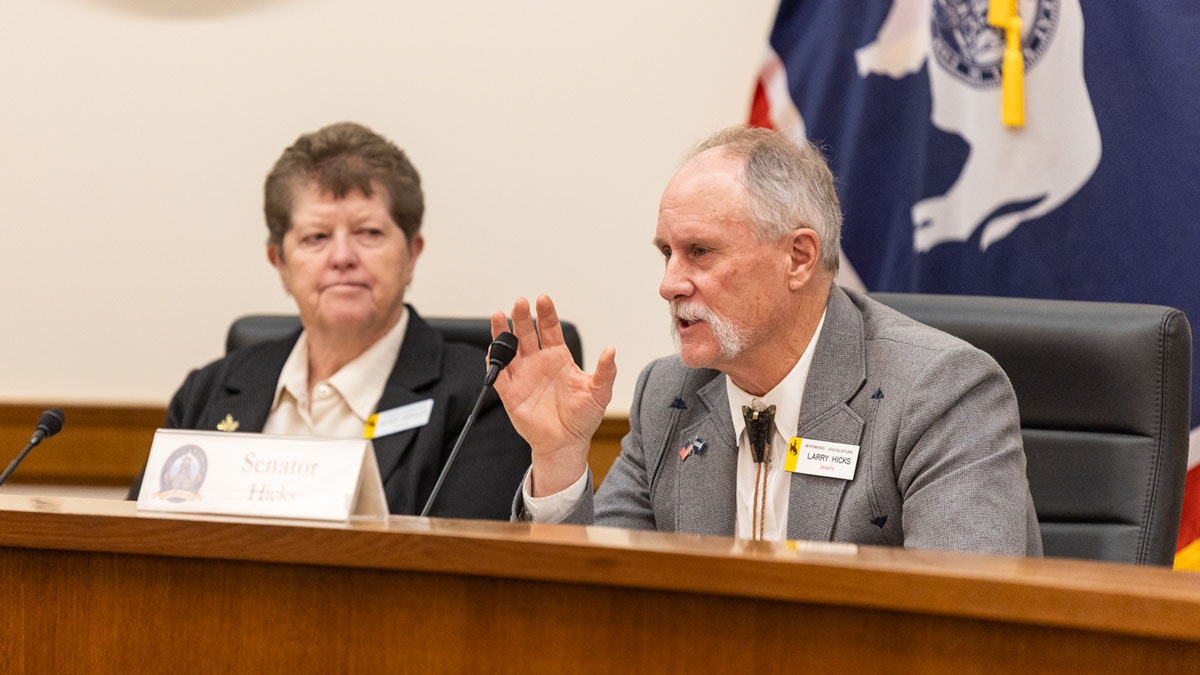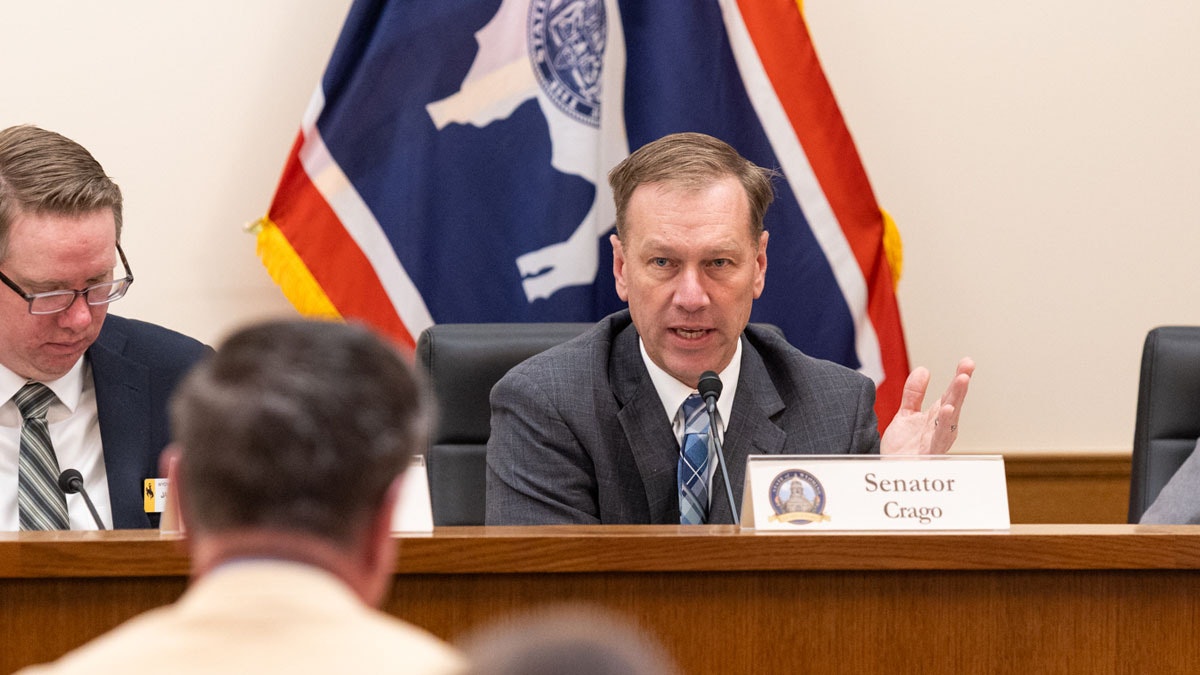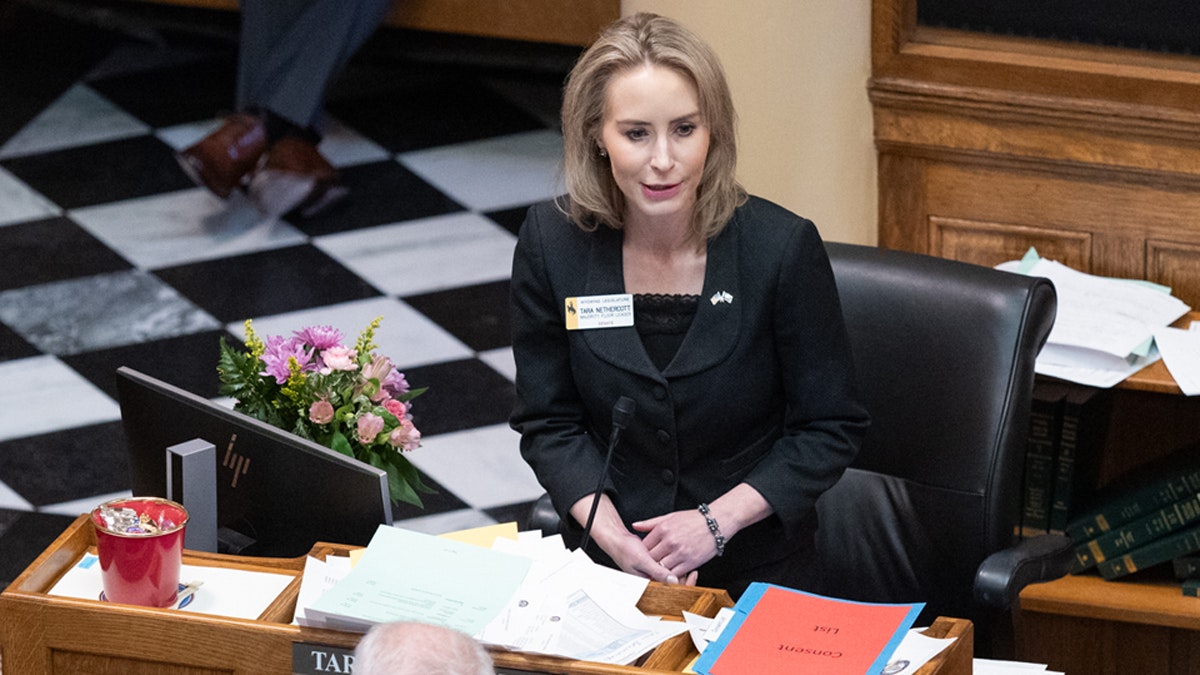Two bills designed to keep males out of certain women’s spaces and vice versa in Wyoming cleared their first legislative committee meetings Friday.
House Bill 72 is now headed to the Wyoming House of Representatives floor, and Senate File 62, which focuses exclusively on school bathrooms and changing facilities, is headed to the Senate Floor.
They have similar goals, but with different features.
HB 72 would separate multi-occupancy male and female bathrooms, changing rooms, showers and sleeping quarters in public facilities across the state so that males could not shower in a women’s locker room at a public recreational center, for example. It includes prisons and schools, and gives people who encounter a member of the opposite sex in the wrong facility the right to sue the government.
The bill also contains several carveouts, exempting janitorial staff and other employees performing their duties, people rendering medical assistance, people taking refuge in natural disasters, parents and other guardian-like designees helping someone “in need of assistance” such as with potty training.
The bill would require schools to provide “reasonable accommodation” to non-conforming people who submit a request in writing.
The House Education Committee voted 9-0 in favor of HB 72 Friday.
Opponents were concerned that its offer for people to sue government entities that don’t take “reasonable steps” to prevent cross-sex bathroom use is too broad and could encourage lawsuits.
Proponents said it’s necessary to protect women and girls.
Across The Hall
On the Senate side, SF 62 sent Sen. Chris Rothfuss, D-Laramie, into incisive debates with most of its proponents.
If it becomes law, the bill would ban males from using female bathrooms and changing rooms in schools, and vice versa, but would also require schools to offer single-occupancy bathrooms as an accommodation to non-complying students.
It contains language letting coaches have meetings in a locker room if everyone is fully clothed and if another adult accompanies the coach.
As originally written, it would strip non-complying school districts of their accreditation, but the Senate Education Committee removed that section Friday. The committee kept a part of the bill that would let parents sue school districts for non-compliance.
Rothfuss had criticized the accreditation loss as an unprecedented penalty.
The bill’s sponsor, Sen. Dan Laursen, R-Powell, noted that his local school board, Park County School District No. 1, urged him to bring the bill so the school board wouldn’t have to wage its own court battles by writing a sex-separate bathroom policy of its own.
“I’d be amazed if your school superintendent said, ‘Yeah, if we have a little flaw with the bathroom policy we should lose our accreditation,’” said Rothfuss.
PCSD1 Superintendent Jay Curtis later testified in favor of the bill, but agreed with Rothfuss that he didn’t want the accreditation penalty in its language.
Curtis also asked the committee to remove language letting people sue schools — a pair of suggestions that would have stripped the bill of any penalizing component.
The district has had problems with cross-sex bathroom use, Curtis said.
Sophomore
Though Curtis said he didn’t want to go into detail about the issues in his district, one of his high school students did.
Taylor Peters, a sophomore at Powel High School and an active member of clubs, sports and her church, said the debate surrounding the bill had ignored its main mission.
“What is being lost in the conversation today is the safety and comfort of biological girls,” Peters testified via Zoom.
A male student in her school who identifies as female has been using girls’ spaces, Peters said.
That student’s stature doesn’t frighten Peters. But she said the practice’s possible outcomes — of much larger males switching bathrooms — do.
“Because of the lack of policy, any male can just say they’re female and enter my bathroom or locker room at any time,” said the girl. “Girls are being taunted about how there’s nothing we can do to protect our spaces, and we are forced to deal with it.”
Peters urged lawmakers to keep the bill’s penalizing language within it: “A bill without teeth is nothing.”
Actually, Coaching
Wyoming Equality Executive Director Sara Burlingame read a statement on behalf of her group’s communications director, Santi Murillo.
Murillo is a male who identifies as female, was reportedly the first openly transgender student athlete at the University of Wyoming and is small of stature and feminine in appearance.
“In a grand irony, (Murillo) had asked for today off — because she’s coaching,” said Burlingame, in a nod to earlier debate about whether the bill’s restrictions on how coaches can host team meetings in changing rooms could hamstring smaller schools with limited staff. “I marvel at her capacity to continue serving her community; even as this body attempts to reject that service.”
Murillo’s testimony says the coach would “be forced to share facilities with teenage boys. This would not only cause confusion but create uncomfortable and potentially unsafe situations for everyone involved.”
Murillo said the bill tries to erase and shun transgender people, and violates the state’s long-cherished principle of letting local governments, like school boards, control their own policies.
Logistics
Rothfuss railed against the bill’s overall goal and compared it to the now-illegal separate-but-equal doctrines used to defend racial segregation laws in the 1960s.
But he also had issues with its technical functions. He worried aloud that tiny, small-town schools won’t be able to manage its “reasonable accommodation” mandate of providing an alternate facility. He voiced concern that its carveouts weren’t broad enough.
Sen. Jared Olsen, R-Cheyenne, voted in favor of the bill but also voiced concern over its application. He proposed an amendment, which the committee approved, to add language for people helping young children potty train, or helping disabled people use the facilities.
Rothfuss tried stripping away the part of the bill letting people sue schools, but Olsen argued against that, saying the bill should retain one of its penalizing functions. The committee rejected Rothfuss' amendment.
“I think parents and legal guardians of students need to have remedies under the law, if there’s a protection or safety issue,” said Olsen.
All committee members present except Rothfuss voted in favor of SF 62
Clair McFarland can be reached at clair@cowboystatedaily.com.





